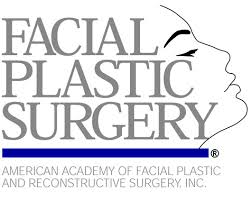Fees and Payment Policies
Cosmetic plastic surgery procedures are not covered by insurance and are therefore paid by the patient. After your consultation with our plastic surgeons you will be provided with a detailed financial quote for your planned procedure which will also include the cost of anesthesia and operating room fees. Procedures which are cosmetic in nature and are not covered by insurance include:
|
FACE |
BREAST & BODY |
| Eyelid lift (blepharoplasty) | Breast augmentation |
| Brow lift | Breast lift |
| Face lift | Breast reduction |
| Neck Lift | Fat grafting to breast |
| Fat grafting | Tummy tuck (abdominoplasty) |
| Rhinoplasty | Liposuction |
| Laser resurfacing | Arm lift |
| Chin implant | Thigh lift |
Reconstructive plastic surgery procedures may be covered by insurance if they qualify as medically necessary. After your consultation with our plastic surgeons, if criteria for medical necessity are met, our clinic will seek prior authorization through your insurance career.
Procedures which may be considered reconstructive in nature and may qualify for insurance coverage include:
- Skin cancer removal and reconstruction
- Eyelid lift for vision
- Septoplasty
A list of insurance companies we work with can be found on this page: http://seattleface.com/service/non-surgical/dermatology-services
Fees and Payment Policies FAQ
Cosmetic surgery procedures will typically have 3 components to the total fee:
Surgeon fee - the fee charged by the surgeon(s) performing your cosmetic procedure(s).
Facility fee - the fee for the use of the operating room, equipment, and supplies related to your cosmetic surgery.
Anesthesia fee - the fee charged by your anesthesia provider for your cosmetic procedure(s).
Insurance terminology can be confusing. Below, we have summarized the most common terminology to help you understand how insurance company pay for health benefits.
Deductible - the amount your insurance company expects you to spend out of pocket before they start to pay for benefits. This depends on your insurance plan and policy and can range from zero to thousands of dollars.
Co-pay - the minimum amount you pay for each visit, regardless of the charges. Typically this amount is zero to $30.
Co-insurance - typically a percentage of the total charges that you pay out of pocket with your insurance covering the remainder. The co-insurance is in addition to the co-pay. The co-insurance also depends on your insurance plan and policy and can range from 0% to as high as 50%.
Allowed charges - when charges are submitted to your insurance company, at times only a portion of the charges are allowed and thus processed for payment. The allowed charges are determined by your insurance company based on national averages.
Disallowed charges - this is the portion of the charges not allowed by your insurance company. In-network providers must write-off (not consider you responsible for) the disallowed charges. Another term used for the disallowed charges in contractual adjustment.
In-Network providers - these are providers that have signed a contract with your insurance company, at times also called preferred providers.
Out-of-Network providers - all other providers that have not signed a contract with your insurance company. Depending on your insurance plan and policy you may have full access, limited access, or no access to out-of-network providers and you also may have a different co-insurance percentage. Typically the best insurance plans give their members unrestricted access to out-of-network providers.
Professional fee - this is the fee charged by your surgeon for the office visit and/or medical/reconstructive procedures performed.
Supply fee - this is the fee charged for any medication or supplies used for your treatment.
Facility fee - the fee for the use of the operating room, equipment, and supplies related to your medical/reconstructive surgery.
Anesthesia fee - the fee charged by your anesthesia provider for your medical/reconstructive procedure(s).





